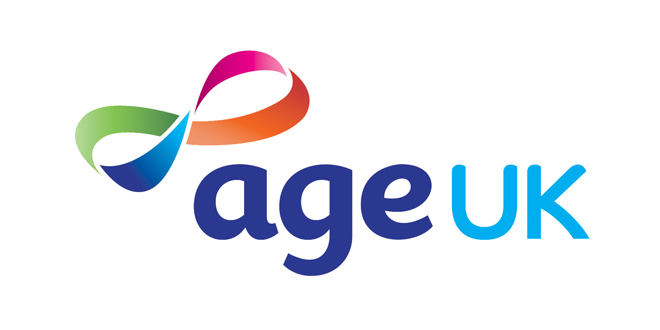British Public Unprepared For Financial Cost Of Care Crisis
 Nearly three-quarters (72%) of people who expect to need social care will have to make do with whatever they can afford, with just 27% expecting to have financial freedom of choice
Nearly three-quarters (72%) of people who expect to need social care will have to make do with whatever they can afford, with just 27% expecting to have financial freedom of choice- Majority feel the state rather than individuals should fund care provision, despite cuts to social care budgets
- But in reality, only 33% of future recipients believe government will provide for them, compared with 51% who currently receive care
- 30% have no idea how they will fund care; and 42% of current recipients feel they cannot afford sufficient care
- More people are willing to pay for gardeners and personal shoppers than professional carers
Financial pressures threaten to block a majority of UK adults from a choice of social care services to suit their individual needs, according to new research from national homecare provider Prestige Nursing + Care which sheds new light on the extent of the escalating care funding crisis in the UK.
Stark reality of a lack of choice
Nearly three quarters (72%) of people who expect that either they or a close family member will need social care* in the next ten years are resigned to having to make do with whatever they can afford, even if it is not what they would prefer or best suited to their health requirements.
One in three (30%) who expect to need care have no idea how they will pay for it. Barely a quarter (27%) believe they will be able to pick and choose from care services without worrying about the cost.
Only one in three (33%) believe the government will provide for them or a family member if they require care in the next decade: significantly lower than the 51% of current care recipients and their families who say they currently receive government funding. The contrast highlights the fact that, while state-funded care services are already stretched, the future prospects look even starker in light of the UK’s ageing population and continuing pressures on public spending.
Among current recipients of care and their families, the majority (69%) feel the care they receive is good value for money, yet 42% report that it is insufficient for their needs and that they simply cannot afford more. More than one in ten (13%) feel that the care they or their family member receives is not delivered how or where they want it to be.
Care costs still seen as a government responsibility
Despite doubts over the availability of government funding, Prestige’s findings show that the majority of UK adults retain the view that social care funding should be provided by the state. Half (51%) feel this should be universal while 36% support means tested care depending on individual needs.
Barely one in ten people (11%) believe they should have to use their own savings and assets or that family or friends should have to help out with paying for care.
Similarly, nearly three in five (59%) believe that care workers’ services should be available to the public free of charge, with just 41% saying they would be willing to pay if they needed them. The findings suggest that people are less willing to fund their own care needs than a variety of other services, including taxi drivers, gardeners, cleaners, personal shoppers and lawyers. Only doctors, dentists, surgeons and physiotherapists have fewer people willing to pay for their services [see table 1].
Table 1: Which of the following services would you be willing to pay for if you needed them?
| Taxi driver | 88% |
| Gardener | 86% |
| Cleaner | 83% |
| Personal shopper | 79% |
| Lawyer | 72% |
| Counsellor/therapist/life coach | 51% |
| Care worker | 41% |
| Physiotherapist | 34% |
| Dentist | 34% |
| Surgeon | 16% |
| Doctor/GP | 15% |
However, the reality of the care crisis facing the UK is that many people will find themselves having to pay for their own care. People with more than £23,500 in savings and assets have to fund their own social care in England. Plans to raise this threshold have been shelved until 2020 as the Government struggles with care provision for growing numbers of vulnerable elderly people. Recent research from Age UK also suggests that cuts to care funding mean that 1.2 million elderly people don’t receive the care that they need: an increase of 48% since 2010*.
Despite the fact that a growing number of people face having to fund their care privately, many are unprepared to do so. Nearly two in five (38%) people say it is not realistic to save up and pay for care while also saving for retirement, and a further 40% say the same while raising a family.
Jonathan Bruce, managing director of Prestige Nursing + Care commented on the findings
“It is worrying to see that so many people do not know how they will pay for care and that a majority do not want to pay for a carer. The expectation that care is free at the point of use for everyone is understandable, but the reality is that the sector is under severe financial pressure, and more and more people are likely to have to fund care privately without relying on Government support. The inconvenient truth is that, in order to receive the quality of care we all desire, it is becoming increasingly necessary to make a significant contribution towards it.
“It’s equally troubling that so many people say they will be left having to make do with whatever level of care they can afford, as getting the right care makes an enormous difference to a person’s wellbeing. If the model of UK care provision is going to become increasingly reliant on self-funding, it is hugely important that people are made aware of these costs early on and supported to make adequate provisions.
“Good quality care rests on skilled professionals to deliver it, and without sufficient funds, it will be impossible to attract the workers needed to meet the growing demand for staff. There is a skewed sense of value at play when it comes to paying for professional services, and as a society, we also need to reappraise attitudes towards the vital services that care workers provide.”






